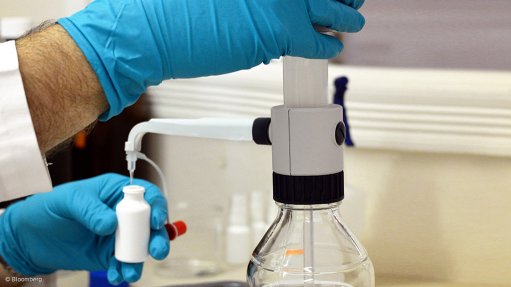
Photo by: Bloomberg
The Council for Scientific and Industrial Research (CSIR) and Stellenbosch University (SU) this week cemented plans to intensify research and development collaboration over the next five years.
Following a fruitful partnership and the completion of several successful projects since 2008, the two organisations renewed a memorandum of understanding (MoU) to elevate collaboration in targeted priority areas.
In a joint media release, CSIR group executive for strategic alliance and communication Dr Rachel Chikwamba said the partnership would see the fast-tracking of skilled human capital output from the university, while doing directed research to solve “major problems” in South Africa.
“The most critical challenges that South Africa faces require collaboration among different universities and research councils to create a critical mass to investigate and solve these problems,” added SU deputy vice-chancellor for research and innovation Professor Eugene Cloete.
The university was exploring possible areas of collaboration, particularly within the information and communication technology (ICT) sector, that would propel the institution into one of the “leading research universities in the world”.
The parties established a joint steering committee to develop a strategic plan for the areas of collaboration and oversee the progress and success of the MoU.
The ICT research and development collaboration would narrow to network security; intrusion detection; wireless mesh networks; human language technologies; sign language machine translation; sensor web and distributed sensing; high-performance computing; unmanned aerial vehicles; mobile technologies; and the Internet of Things.
The expansion of ICT research capacity was also a top priority.
The MoU also directed joint development efforts in natural resources and the environment, including wind and solar photovoltaic renewable energy; ocean energy; invasive biology; resource economics; sustainable energy; environmental assessment and management; ecosystem services; coastal engineering; groundwater; and environmental microbiology.
In the area of the built environment, the focus would be on planning, rural infrastructure development and logistics and supply chain management.
The collaboration agreement also covered materials sciences and manufacturing with a focus on titanium research, polymer science, nanoscience, finite element modelling, microelectromechanical systems and electro-optics.
Another top priority outlined by the MoU was biosciences, including research collaboration focused on drug delivery, aquaculture, microbial and yeast expression, fermentation processes and bioprocessing to produce biotechnology products for use in health and other industrial sectors, bioenergy, food science and technology, nutrition, diagnostics and HIV and tuberculosis prevention.